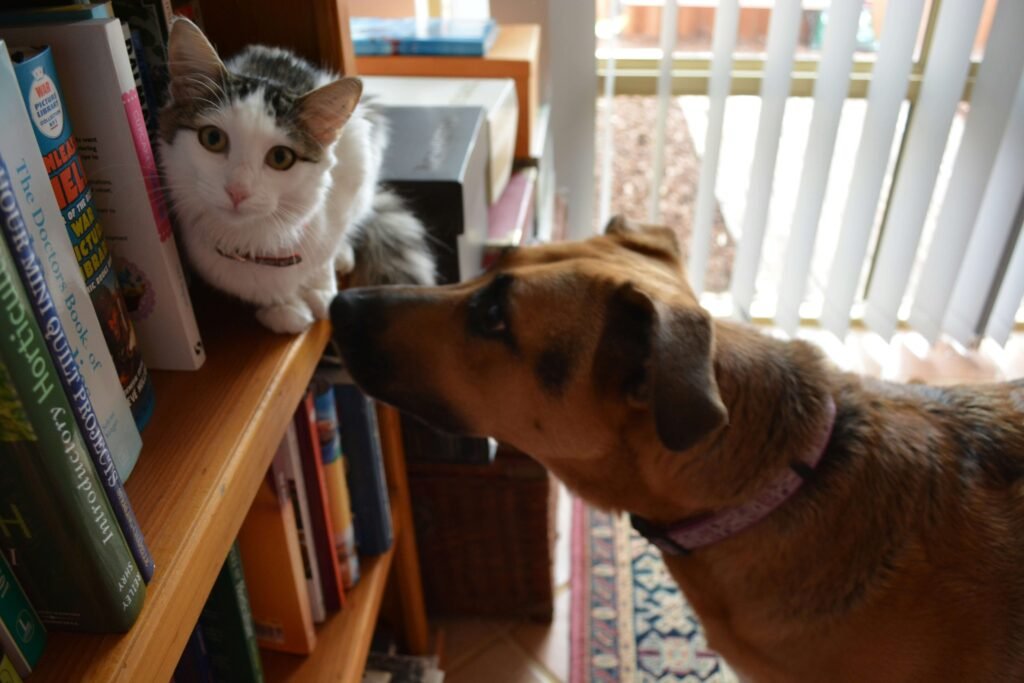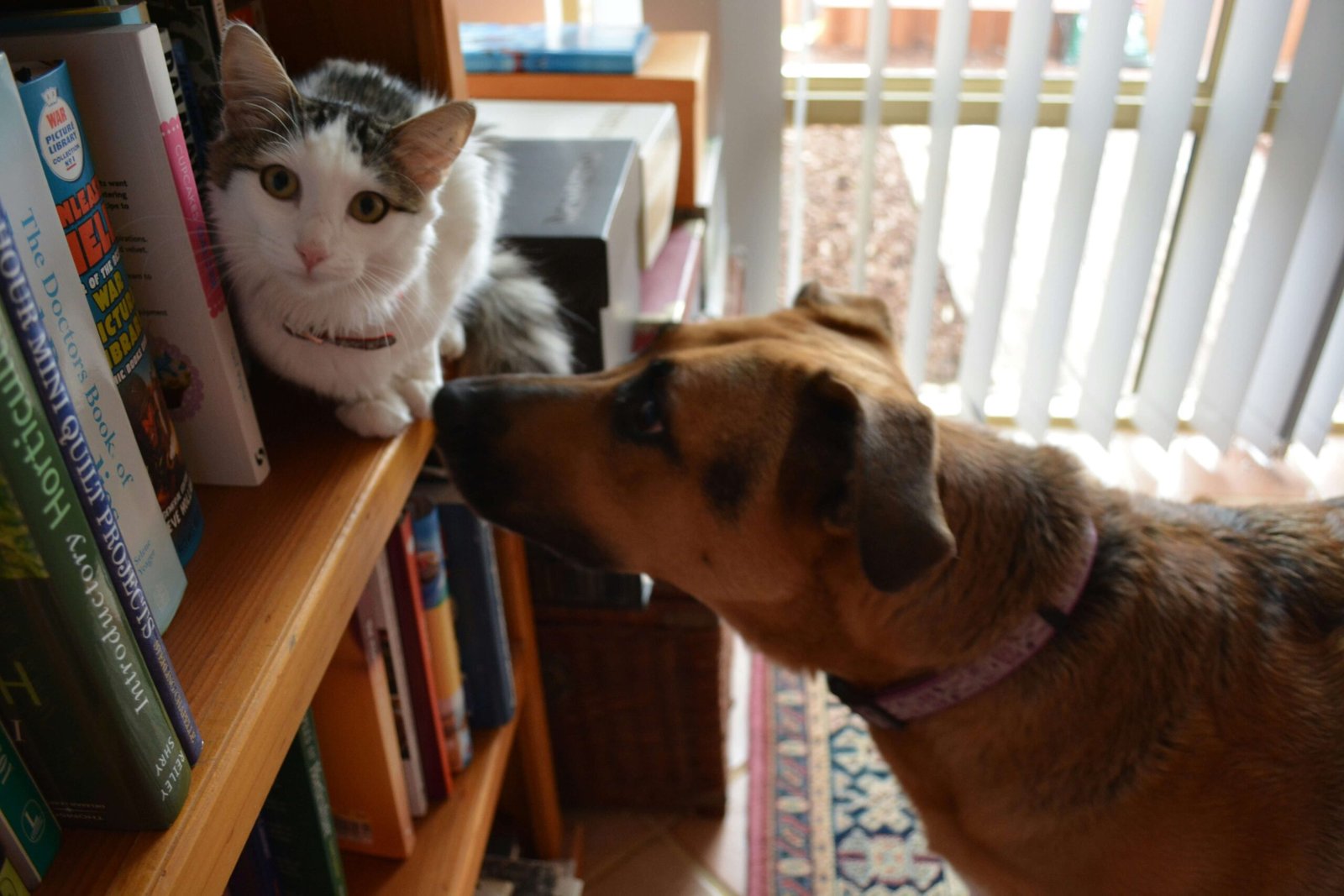Why Do Dogs Eat Cat Poop? Unraveling the Mystery Behind This Puzzling Behavior
As a dog owner, you may have witnessed your furry friend engaging in some rather unpleasant habits. One of the most baffling behaviors is when dogs eat cat poop. It’s enough to make any pet parent cringe and wonder, “Why on earth would they do that?” While it might seem gross or even alarming, this behavior is more common than you think. In this blog post, we’ll explore the reasons behind this peculiar habit, how it affects your dog’s health, and what you can do to discourage it. By the end, you’ll have a clearer understanding of why dogs eat cat poop and how to address it effectively.
What Triggers Dogs to Eat Cat Poop?
Dogs are curious creatures by nature, and their behavior often stems from instinctual drives or environmental influences. Understanding the triggers behind their tendency to eat cat poop can help you manage this behavior better. Below are some common factors that contribute to this habit:
Natural Scavenging Instincts
Dogs are descendants of wolves, who were natural scavengers. Eating feces might be an extension of their ancestral instincts to consume whatever is available.Nutritional Deficiencies
Sometimes, dogs eat cat poop because they’re lacking essential nutrients in their diet. Cat feces may contain undigested proteins or fats that appeal to them.Boredom or Anxiety
Dogs often resort to unusual behaviors when they’re bored or anxious. Eating cat poop might be a way for them to cope with stress or entertain themselves.Curiosity About Smell
Cats are obligate carnivores, meaning their diet consists primarily of meat. Their feces often carry a strong scent that can intrigue dogs.Puppyhood Exploration
Young dogs are naturally curious and use their mouths to explore the world. Eating cat poop might simply be part of their developmental phase.
Understanding these triggers can help you identify whether the behavior is a passing phase or something that requires intervention. Either way, addressing the root cause is key to stopping this habit.
Health Risks Associated with Eating Cat Poop
While eating cat poop might seem harmless at first glance, it can pose several health risks to your dog. Being aware of these risks can motivate you to take action sooner rather than later. Here’s what you need to know:
Parasitic Infections
Cat feces can harbor parasites like roundworms or tapeworms, which can infect your dog if ingested.Bacterial Diseases
Bacteria such as E. coli or salmonella found in cat poop can lead to gastrointestinal issues in dogs.Toxins from Cat Food
Some cat foods contain ingredients that are harmful to dogs. Residues of these ingredients in cat feces could affect your dog’s health.Vitamin Imbalances
Consuming cat poop might disrupt your dog’s nutrient absorption, leading to deficiencies or excesses of certain vitamins.Behavioral Issues
If left unchecked, this habit can become a compulsive behavior, making it harder to break over time.
These potential health risks highlight the importance of discouraging this behavior early on. A proactive approach can safeguard your dog’s well-being and ensure a healthier lifestyle.
Check this guide 👉Why Is My Dog Eating Grass Frantically? Best 7 Tips!
Check this guide 👉What to Do If Your Dog Eats a Pork Bone: Best 7 Expert Tips!
Check this guide 👉Can a Dog Eat Spaghetti? Best 7 Expert Tips!

Reasons Why Dogs Eat Cat Poop | How to Prevent It |
|---|---|
Natural scavenging instincts | Provide high-quality food |
Nutritional deficiencies | Add supplements if needed |
Boredom or anxiety | Engage in regular playtime |
Curiosity about smell | Keep litter boxes clean |
Puppy exploration phase | Supervise young dogs closely |
How to Discourage Your Dog from Eating Cat Poop
Stopping this undesirable behavior requires patience and consistency. Fortunately, there are several effective methods you can try. Below are practical tips to help you curb this habit:
Supervise Outdoor Time
Keep a close eye on your dog during walks or outdoor playtime to prevent access to cat feces.Use Positive Reinforcement
Reward your dog with treats or praise when they ignore cat poop, reinforcing good behavior.Clean Litter Boxes Regularly
Remove cat feces from litter boxes promptly to eliminate temptation.Provide Mental Stimulation
Offer puzzle toys or interactive games to keep your dog mentally engaged and less likely to seek out cat poop.Consult a Veterinarian
If the behavior persists, consult a vet to rule out underlying health issues or dietary imbalances.
By implementing these strategies, you can gradually reduce and eventually stop your dog from eating cat poop. Consistency is key to success.
Training Techniques to Stop This Behavior
Training plays a crucial role in modifying your dog’s behavior. With the right techniques, you can teach your dog to avoid cat poop altogether. Consider the following approaches:
Teach the “Leave It” Command
Train your dog to respond to the “leave it” command, which can be used to deter them from approaching cat feces.Redirect Attention
When you notice your dog heading toward cat poop, redirect their attention to a toy or treat instead.Create Barriers Around Litter Boxes
Place baby gates or other barriers around litter boxes to limit your dog’s access.Use Taste Deterrents
Apply safe taste deterrents to areas where cat feces are found to make them unappealing to your dog.Be Patient and Persistent
Behavioral changes take time, so remain patient and consistent with your training efforts.
With dedication and persistence, you can train your dog to overcome this habit and adopt healthier behaviors.
Environmental Factors Contributing to the Behavior
While instinct and curiosity play a significant role, environmental factors can also influence why dogs eat cat poop. Addressing these external triggers can help reduce the likelihood of this behavior. Here are some environmental considerations:
Shared Spaces with Cats
If your dog shares living spaces with cats, they’re more likely to encounter cat feces frequently, increasing the chances of this habit forming.Accessibility to Litter Boxes
Litter boxes that are easily accessible to dogs provide an open invitation to investigate and consume cat feces.Outdoor Environments
Dogs that spend time in areas where stray cats defecate may develop this behavior due to repeated exposure.Lack of Boundaries
Without proper supervision or barriers, dogs have free rein to explore and indulge in undesirable behaviors.Unsanitary Living Conditions
A home that isn’t regularly cleaned can inadvertently encourage scavenging behaviors in dogs.
By identifying and addressing these environmental factors, you can create a safer and more controlled space for your dog, reducing their access to cat feces and discouraging this habit.
Nutritional Adjustments to Curb the Behavior
Sometimes, tweaking your dog’s diet can make a significant difference in curbing their interest in cat poop. Ensuring your dog receives a balanced and satisfying diet is key to addressing potential nutritional deficiencies. Consider the following adjustments:
High-Quality Protein Sources
Incorporate high-quality protein into your dog’s meals to meet their dietary needs and reduce cravings for alternative sources.Digestive Enzyme Supplements
Adding digestive enzymes to your dog’s food can improve nutrient absorption, potentially eliminating the urge to seek nutrients elsewhere.Probiotics for Gut Health
Probiotics can promote a healthy gut microbiome, which may discourage scavenging behaviors linked to digestive issues.Avoid Overfeeding or Underfeeding
Both overfeeding and underfeeding can lead to imbalances that might drive your dog to seek out inappropriate food sources.Consult a Nutritionist
For persistent issues, consulting a veterinary nutritionist can help tailor a diet plan specific to your dog’s needs.
Making thoughtful dietary changes can address underlying nutritional gaps and reduce your dog’s interest in cat feces, promoting healthier eating habits overall.
Behavioral Strategies for Long-Term Success
Beyond immediate interventions, implementing long-term behavioral strategies can ensure lasting results. These approaches focus on creating positive habits and reinforcing desirable behaviors. Here’s how you can achieve this:
Establish a Routine
A consistent daily routine helps dogs feel secure and reduces anxiety-driven behaviors like eating cat poop.Reward-Based Training
Use treats, praise, or toys to reward your dog whenever they ignore cat feces, reinforcing positive decision-making.Socialization with Other Dogs
Interacting with well-behaved dogs can teach your pet appropriate behaviors and reduce their tendency to engage in undesirable habits.Desensitization Techniques
Gradually expose your dog to environments where cat feces might be present, rewarding them for ignoring it to build tolerance.Monitor Progress Over Time
Keep track of improvements and setbacks to adjust your approach as needed for sustained success.
By combining these behavioral strategies with patience and consistency, you can guide your dog toward healthier habits and minimize their interest in cat poop over time.
Frequently Asked Questions About Dogs Eating Cat Poop
Is it normal for dogs to eat cat poop?
Yes, it’s relatively common, but it’s not considered healthy or desirable behavior.
Can eating cat poop harm my dog?
Yes, it can expose your dog to parasites, bacteria, and toxins, posing various health risks.
Why does my dog only eat cat poop and not other types?
The strong smell and protein content in cat feces might make it more appealing than other types.
How can I stop my dog from eating cat poop?
Supervision, training, and environmental management are effective ways to discourage this behavior.
Should I punish my dog for eating cat poop?
No, punishment can increase anxiety and worsen the behavior. Instead, focus on positive reinforcement.
Final Thoughts: Addressing the Issue Compassionately
Dealing with a dog that eats cat poop can be frustrating, but it’s important to approach the situation with understanding and patience. This behavior is rooted in natural instincts, curiosity, or even nutritional needs, and addressing it requires a balanced combination of training, supervision, and dietary adjustments. Remember, your dog isn’t doing this to upset you—they’re simply following their instincts. By taking proactive steps and seeking professional guidance if needed, you can help your furry friend break this habit and enjoy a happier, healthier life together.
Do Cats Have Taste Buds? Best 7 Expert Tips! – Discover how cats experience flavors and why their taste is so unique.
Do Dogs Have Taste Buds? Best 7 Expert Tips! – Discover how dogs experience taste, their preferences, and what it means for their diet and health.
Can Cats Taste Sweet? Best 7 Expert Tips! – Discover why cats can’t taste sweetness, how it affects their diet, and tips to keep them healthy and happy.
Can Dogs Taste Sweet? Best 7 Expert Tips! – Discover how dogs perceive sweetness, which foods are safe, and tips to manage their sweet cravings responsibly.





